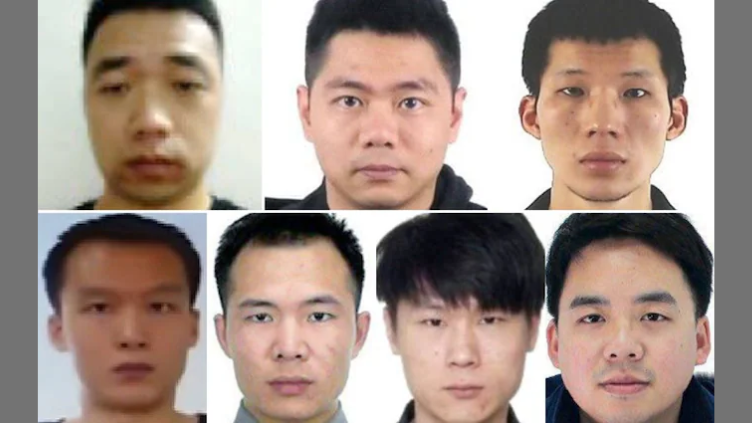UK Engaged In Massive Crackdown on Fraud – Over 400 Arrests
Authors:
• SCARS Editorial Team – Society of Citizens Against Relationship Scams Inc.
• UK National Crime Agency
About This Article
Operation Henhouse, a UK law enforcement/police campaign targeting fraud and scams, resulted in over 400 arrests and £19 million seized across February and March 2024. Coordinated by the National Economic Crime Centre and City of London Police, it involved all UK police forces and agencies like the Financial Conduct Authority and National Crime Agency.
The crackdown aimed to combat the pervasive threat of fraud, which accounts for 40% of UK crime reports and costs £6.8 billion annually. With substantial arrests and disruptions nationwide,
Operation Henhouse demonstrates the effectiveness of collaborative efforts in tackling complex crimes. While the crackdown yields significant results, ongoing public vigilance and proactive measures against fraud remain crucial for safeguarding individuals and communities.

UK Operation Henhouse: over 400 Arrests and £19m Seized in National Campaign Against Scams & Fraud
Over 400 people have been arrested in a UK Fraud crackdown coordinated by the National Economic Crime Centre and City of London Police.
The UK Law Enforcement activity, which was the third iteration of the multi-agency Operation Henhouse, ran across February and March 2024 and resulted in:
- 438 arrested
- 211 voluntary interviews
- 283 cease and desist notices
- account freezing orders of £5.1m
- seizures of cash and assets worth £13.9m
Fraud (and Scams) is currently the most common crime type reported in the UK Crime Survey of England and Wales. It accounts for approximately 40% of all crime reports and costs an estimated £6.8bn each year in England and Wales alone.
For the first time, the action involved all UK police forces and Regional Organised Crime Units, alongside national agencies including the Financial Conduct Authority, National Crime Agency, Serious Fraud Office and National Trading Standards. Over £600k of funding was made available to support the work.
Substantial law enforcement activity was carried out by individual forces and agencies across the UK:
- 27 arrests were made by Norfolk Constabulary.
- 20 arrests were made by Bedfordshire Police.
- Merseyside Police arrested 10 individuals, executed 12 search warrants, seized £548k in cash, and issued five Account Freezing Orders amounting to £287k.
- In Warwickshire, seven arrests and 11 interviews were made in connection to cases where victims were defrauded out of a total of more than £450,000.
- The North West Regional Organised Crime Unit made over 90 disruptions.
- Essex Police froze £2m worth of assets and made 15 arrests.
- Kent police, in addition to providing call blockers to vulnerable people, arrested 20 suspects, seized more than £7,000 and froze accounts worth nearly £100,000.
Several National Crime Agency investigations, many of which involve its Complex Financial Crime Teams, are ongoing.
High value seizures included an £80,000 Porsche by Lancashire Police, a £70,000 BMW by the North West Regional Organised Crime Unit, and a £15,000 Rolex watch, alongside $33,200(USD), £15,750 and a large quantity of high value designer clothing by the South East Regional Organised Crime Unit.
Operation Henhouse also involves collaboration across force boundaries, and between a huge range of partners:
- Police Scotland, supported by Greater Manchester Police and the North West Regional Organised Crime Unit, arrested and charged two men in connection with a fraudulent banking scheme.
- Cleveland Police, working in collaboration with the North East Regional Crime Unit, raided multiple homes across their force area, arresting four individuals.
- In late February, officers from Tarian Regional Organised Crime Unit, working in partnership with the Gambling Commission, HMRC and Cardiff City Council Licensing, executed six warrants across Cardiff, arresting two men on suspicion of money laundering and gambling act offences. Six poker tables, a spinning prize wheel, poker coins and chips, and multiple flat screen televisions were seized.
As part of the action, the National Crime Agency (NCA) worked closely to assist and bolster work led by partners. This included support provided to the Serious Fraud Office on their investigation into Signature Group, a business that attracted over a thousand UK and international investors in the redevelopment of iconic landmarks. It also included support to the South West Regional Organised Crime Unit on an investigation into an organised crime group suspected of stealing nearly £8 million from victims. The work led to eight arrests, as well as the seizure of £300k cash, a BMW and around 100 devices. The largest amount taken from a single victim was £4.1m.
The results represent a 52% increase on last year’s arrest figures under Operation Henhouse, and demonstrate that through coordinated action, forces nationwide can tackle what is a complex and quickly evolving threat.
Adrian Searle, Director of the National Economic Crime Centre (NECC) in the NCA, said:
“Henhouse is proof of what policing and wider law enforcement across the UK can achieve when we come together.
“The emotional harm that fraud causes is immense, and many of those targeted are faced with devastating and life changing losses.
“Fraud investigations take place all year round, but campaigns like Henhouse not only demonstrate how far we will go to pursue those who commit fraud, but also how successful we can be when we work closely with our partners across the country.
“This partnership also extends to working evermore closely with international counterparts and the private sector to target the fraud threat emanating from overseas, and fraud enabling technologies and infrastructure.
“This activity on a number of fronts will significantly impact the fraud threat”
Temporary Detective Superintendent Oliver Little, from the Lead Force Operations Room at the City of London Police, said:
“The success of this year’s Operation Henhouse would not be possible without the hard work of multiple teams from police forces and regional teams across the UK. This is evident in the results, with an estimated £6m in cash seized and over 430 arrests throughout the month. It’s a fantastic and collaborative effort by all officers who took part.
“This year sees our most impressive results yet, with a record number of arrests and disruptions made. With fraud accounting for around 40 per cent of all crime in the UK, we know the important role we have as the national lead force for fraud and how operations like Henhouse are key in delivering results and disrupting criminals.”
Security Minister Tom Tugendhat said:
“Fraud destroys lives. Operations like Henhouse are absolutely vital to crack down on fraudsters and stop them profiteering off of our family, friends, and neighbours.
“The National Crime Agency and forces across the country have done a great job to seize criminal assets worth millions and make more than 400 arrests in a single month.
“Our approach is working. Fraud is already down 13% in England and Wales. This government is determined to continue our efforts to bring fraudsters to justice and protect the public.”
The public can take steps to help protect themselves against fraud. Be sure to protect your online accounts from compromise by criminals:
- Create strong, unique passwords for accounts
- Always use 2-step verification if offered
- Use your browser’s password manager to safely store passwords.
Criminals may pretend to be a trusted person or company. If something seems suspicious or unexpected, such as requests for money or personal information, contact the organisation directly to check. Use contact details from their official website, not those given in a message, email or phone call.
If you have fallen victim to fraud or cyber crime, report it any time at www.actionfraud.police.uk. In Scotland, report it to Police Scotland by calling 101. If you are a victim of fraud, report it to your bank so they can protect your account.
Please Rate This Article
Please Leave Us Your Comment
Also, tell us of any topics we might have missed.
Thank you for your comment. You may receive an email to follow up. We never share your data with marketers.
-/ 30 /-
What do you think about this?
Please share your thoughts in a comment above!
More Crime Related Information:
- How to report worldwide Reporting.AgainstScams.org
- Action Fraud
- Scammers Arrested In India Using A New Return Money Scam Tactic – 2024
- Ukrainian Scammer/Cryptojacker Arrested – 2024
- Scam Victim Commits Suicide – Romance Scam Scammers Arrested – 2023
- INTERPOL Operation HAECHI IV – Over 3,500 Successful Arrests – Expanded Details – 2023
-/ 30 /-
What do you think about this?
Please share your thoughts in a comment above!
SCARS LINKS: AgainstScams.org RomanceScamsNOW.com ContraEstafas.org ScammerPhotos.com Anyscam.com ScamsNOW.com
reporting.AgainstScams.org support.AgainstScams.org membership.AgainstScams.org donate.AgainstScams.org shop.AgainstScams.org
youtube.AgainstScams.org linkedin.AgainstScams.org facebook.AgainstScams.org
ARTICLE RATING
TABLE OF CONTENTS
CATEGORIES
MOST POPULAR COMMENTED ARTICLES
POPULAR ARTICLES
U.S. & Canada Suicide Lifeline 988
![NavyLogo@4x-81[1]](https://scamsnow.com/wp-content/uploads/2025/04/NavyLogo@4x-811.png)
ARTICLE META
WHAT PEOPLE ARE TALKING ABOUT LATEST SITE COMMENTS
See Comments for this Article at the Bottom of the Page
on Arts and Crafts Can Significantly Aid in Recovery for Scam Victims – 2025: “I did not realize that things I like doing very much—knitting or sudoku—were so helpful in my recovery process. The…” Jul 14, 11:28
on Projection And Scam Victims: “The moment I realized I had a financial loss due to a scam I realized that I felt shame, guilt,…” Jul 13, 19:12
on Japanese Legend of Tears – When There Are No Words – 2025: “After discovering the fraud, the pain was enormous. I shed oceans of tears, but I always tried to do it…” Jul 13, 10:50
on The SCARS Institute Scam Victim Recovery Timeline – 2025: “Wow. I umm experienced some of the later curves. I have been bouncing back and forth between asking myself why…” Jul 11, 00:01
on Transference And Emotional Danger After The Scam – 2024: “Thank you for the kind but firm reminder that the person in the stolen profile photo has their own life.…” Jul 9, 01:26
on ‘Mental Defeat’ – The Unique Condition Of Giving Up – 2024: “Thank you for another great article. I can see from this article that mental defeat would be debilitating to a…” Jul 9, 00:49
on Trust: Romance Scams Betrayal And Scam Victims – 2024: “This provided valuable insight that I can identify with” Jul 8, 16:44
on A Scam Victim in Extreme Distress – Stopping the Pain – 2024: “Your trust issues are very understandable. We are very sorry this happened to you. We suggest that you contact an…” Jul 8, 14:42
on A Scam Victim in Extreme Distress – Stopping the Pain – 2024: “My online counselors advised me to check myself in. I went to the hospital because I was suicidal. After I…” Jul 8, 13:44
on Scam Victim Catastrophizing Making Recovery Difficult 2024: “Excellent article on catastrophizing. I can understand how this could take a person down a rabbit warren of never ending…” Jul 8, 12:12
on The Self-Pity Trap & How To Overcome It – 2023 – [UPDATED 2025]: “I am not in the habit of feeling sorry for myself. After the deception, although it was not easy at…” Jul 8, 11:49
on Pride – A Dual Edged Sword For Scam Victims – 2023 [UPDATD 2024]: “Looking back over my life I have seen how pride has impacted me both positively and negatively. However the negative…” Jul 8, 09:08
on The Self-Pity Trap & How To Overcome It – 2023 – [UPDATED 2025]: “I felt self-pity while the enormity of my financial loss washed over me like a tsunami. The self-pity lasted only…” Jul 7, 18:55
on The Uniqueness Of Scam Victims Or Fraud Victims – 2024: “unfortunately all true. It is highly stressful dealing with the aftermath. I am being sued for the money I borrowed…” Jul 6, 12:50
on Scam Victims & Mental Health Blaming – 2023 [UPDATED 2025]: “For most of my life words have defeated me, made me feel insignificant, unwanted, unneeded. For this reason it is…” Jul 5, 13:36
on Substance Abuse Susceptibility And Scam Victims – 2024: “It is understandable how some would feel that alcohol or substance abuse would be helpful in handling their feelings after…” Jul 1, 20:36
on Scam Victims Use Work To Avoid Healing: “The last 6 years have been the most difficult of my life. The pandemic, having both parents in the hospital…” Jun 29, 18:38
on Entitlement Mentality And How Scam Victims Often Lose Their Path To Recovery – 2024: “Thank you for this discussion of entitlement. I can see from the descriptions listed that I have not felt entitlement.…” Jun 29, 18:22
on Samurai Wisdom and Rituals for Clearing the Mind After Scam Trauma – 2025 – [VIDEOS]: “A great guide on how to move forward in our recovery process with a calm mind, cleansed on an ongoing…” Jun 28, 07:34
Important Information for New Scam Victims
Please visit www.ScamVictimsSupport.org – a SCARS Website for New Scam Victims & Sextortion Victims
SCARS Institute now offers a free recovery program at www.SCARSeducation.org
Please visit www.ScamPsychology.org – to more fully understand the psychological concepts involved in scams and scam victim recovery
If you are looking for local trauma counselors, please visit counseling.AgainstScams.org
If you need to speak with someone now, you can dial 988 or find phone numbers for crisis hotlines all around the world here: www.opencounseling.com/suicide-hotlines
Statement About Victim Blaming
Some of our articles discuss various aspects of victims. This is both about better understanding victims (the science of victimology) and their behaviors and psychology. This helps us to educate victims/survivors about why these crimes happened and not to blame themselves, better develop recovery programs, and help victims avoid scams in the future. At times, this may sound like blaming the victim, but it does not blame scam victims; we are simply explaining the hows and whys of the experience victims have.
These articles, about the Psychology of Scams or Victim Psychology – meaning that all humans have psychological or cognitive characteristics in common that can either be exploited or work against us – help us all to understand the unique challenges victims face before, during, and after scams, fraud, or cybercrimes. These sometimes talk about some of the vulnerabilities the scammers exploit. Victims rarely have control of them or are even aware of them, until something like a scam happens, and then they can learn how their mind works and how to overcome these mechanisms.
Articles like these help victims and others understand these processes and how to help prevent them from being exploited again or to help them recover more easily by understanding their post-scam behaviors. Learn more about the Psychology of Scams at www.ScamPsychology.org
SCARS INSTITUTE RESOURCES:
If You Have Been Victimized By A Scam Or Cybercrime
♦ If you are a victim of scams, go to www.ScamVictimsSupport.org for real knowledge and help
♦ Enroll in SCARS Scam Survivor’s School now at www.SCARSeducation.org
♦ To report criminals, visit https://reporting.AgainstScams.org – we will NEVER give your data to money recovery companies like some do!
♦ Follow us and find our podcasts, webinars, and helpful videos on YouTube: https://www.youtube.com/@RomancescamsNowcom
♦ Learn about the Psychology of Scams at www.ScamPsychology.org
♦ Dig deeper into the reality of scams, fraud, and cybercrime at www.ScamsNOW.com and www.RomanceScamsNOW.com
♦ Scam Survivor’s Stories: www.ScamSurvivorStories.org
♦ For Scam Victim Advocates visit www.ScamVictimsAdvocates.org
♦ See more scammer photos on www.ScammerPhotos.com
You can also find the SCARS Institute on Facebook, Instagram, X, LinkedIn, and TruthSocial
Psychology Disclaimer:
All articles about psychology and the human brain on this website are for information & education only
The information provided in this and other SCARS articles are intended for educational and self-help purposes only and should not be construed as a substitute for professional therapy or counseling.
Note about Mindfulness: Mindfulness practices have the potential to create psychological distress for some individuals. Please consult a mental health professional or experienced meditation instructor for guidance should you encounter difficulties.
While any self-help techniques outlined herein may be beneficial for scam victims seeking to recover from their experience and move towards recovery, it is important to consult with a qualified mental health professional before initiating any course of action. Each individual’s experience and needs are unique, and what works for one person may not be suitable for another.
Additionally, any approach may not be appropriate for individuals with certain pre-existing mental health conditions or trauma histories. It is advisable to seek guidance from a licensed therapist or counselor who can provide personalized support, guidance, and treatment tailored to your specific needs.
If you are experiencing significant distress or emotional difficulties related to a scam or other traumatic event, please consult your doctor or mental health provider for appropriate care and support.
Also read our SCARS Institute Statement about Professional Care for Scam Victims – click here
If you are in crisis, feeling desperate, or in despair, please call 988 or your local crisis hotline.
More ScamsNOW.com Articles
A Question of Trust
At the SCARS Institute, we invite you to do your own research on the topics we speak about and publish. Our team investigates the subject being discussed, especially when it comes to understanding the scam victims-survivors’ experience. You can do Google searches, but in many cases, you will have to wade through scientific papers and studies. However, remember that biases and perspectives matter and influence the outcome. Regardless, we encourage you to explore these topics as thoroughly as you can for your own awareness.















![scars-institute[1]](https://scamsnow.com/wp-content/uploads/2025/04/scars-institute1.png)
![niprc1.png1_-150×1501-1[1]](https://scamsnow.com/wp-content/uploads/2025/04/niprc1.png1_-150x1501-11.webp)

Leave a Reply